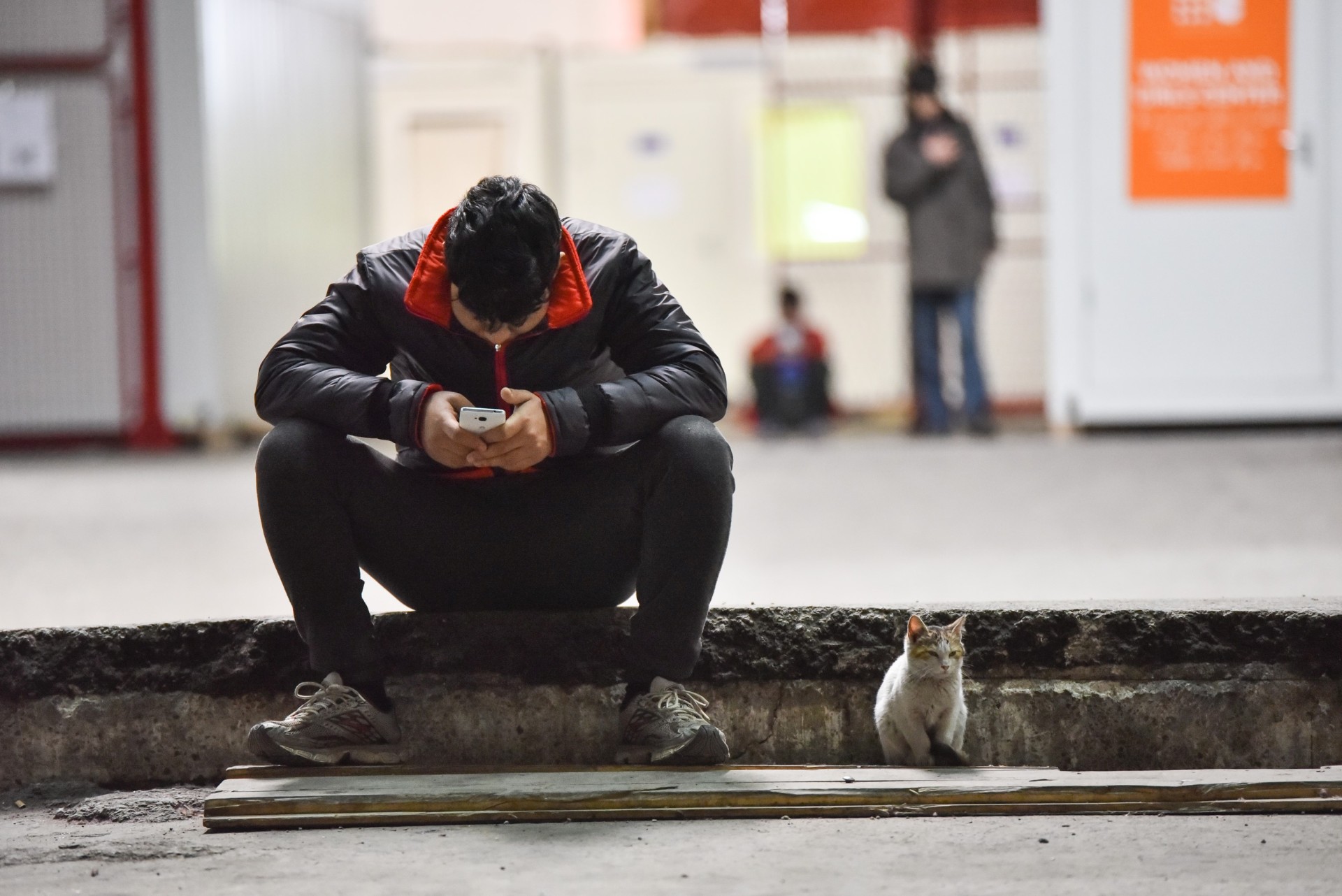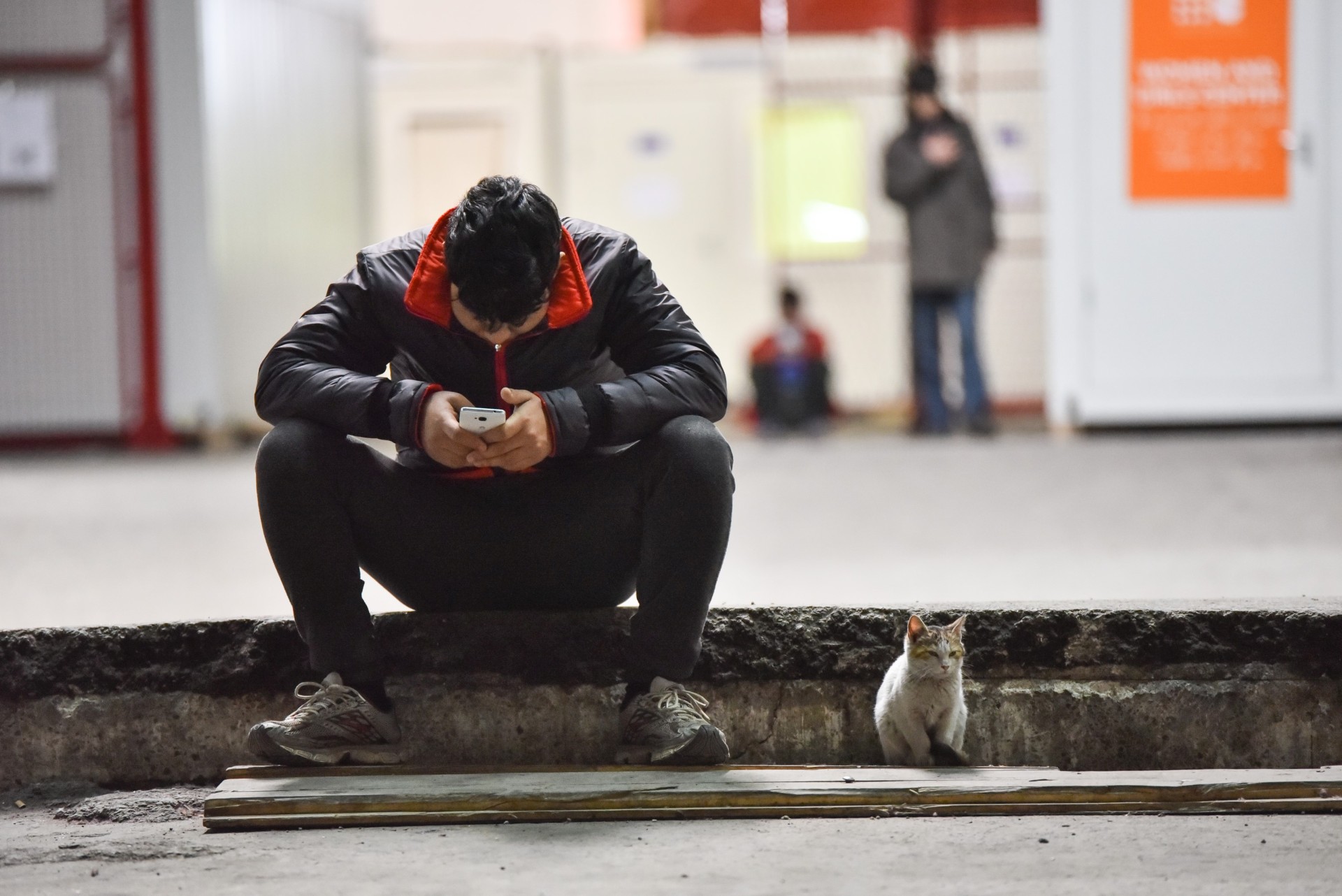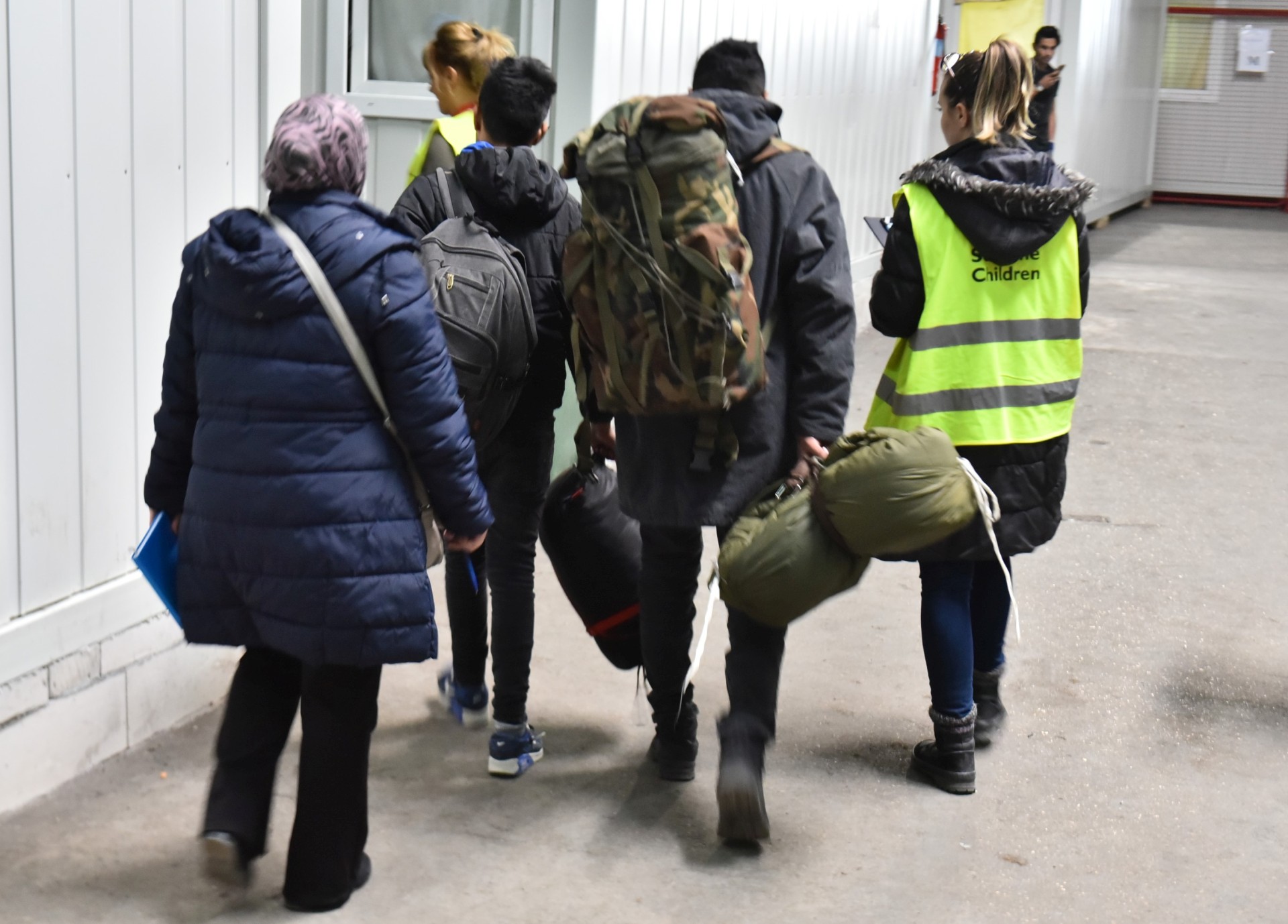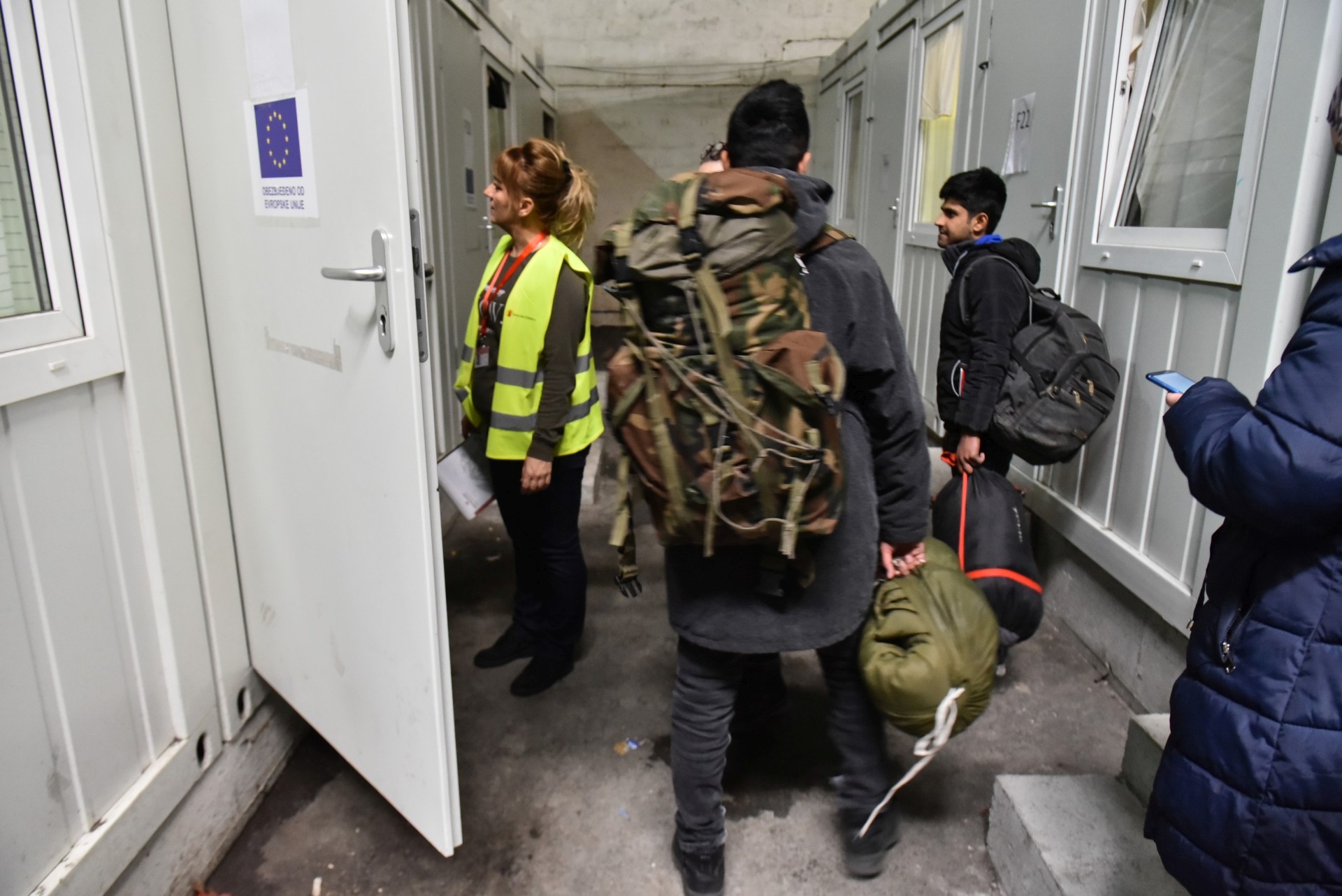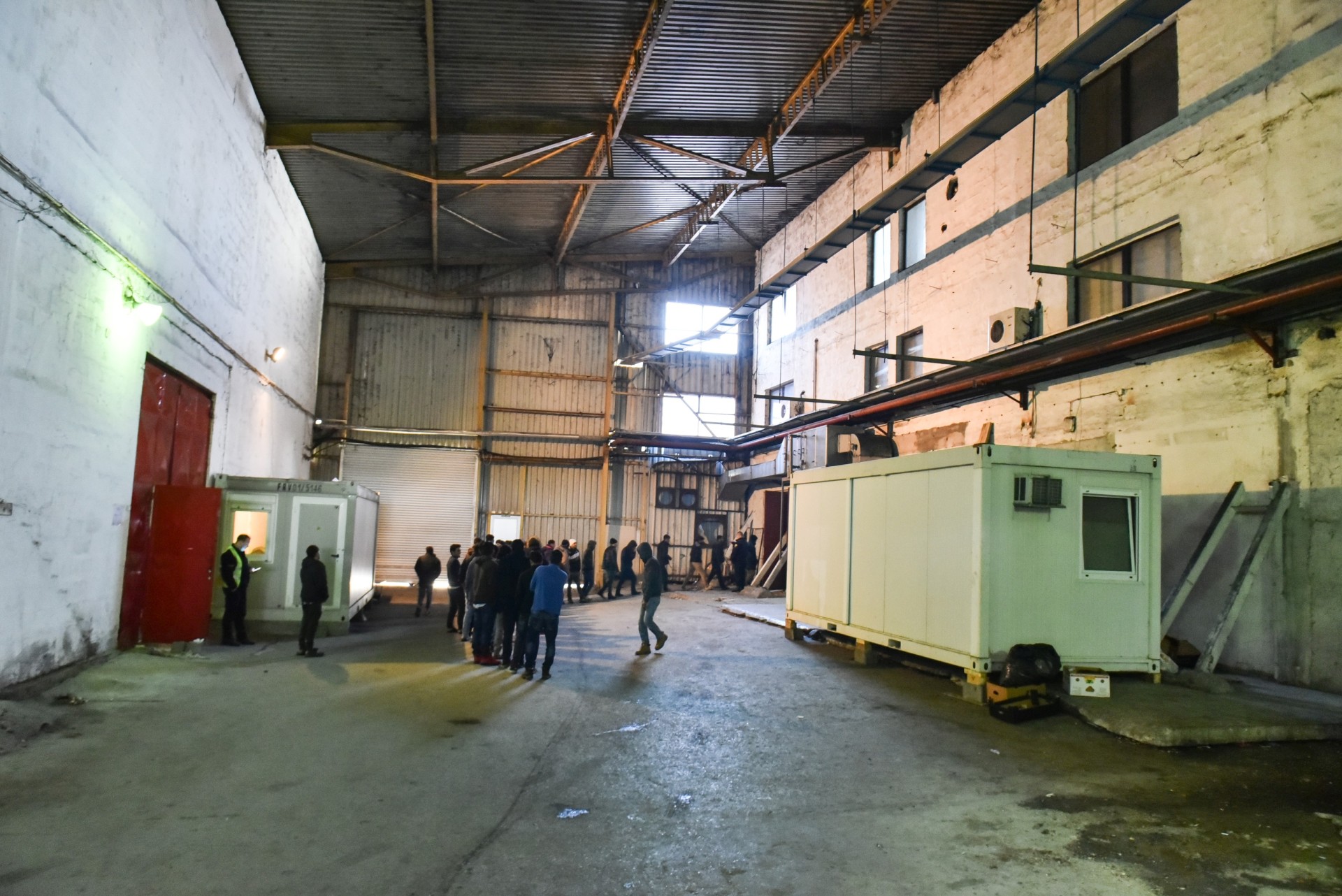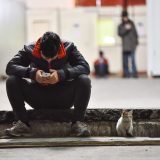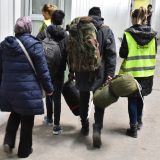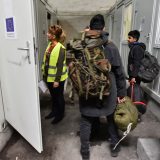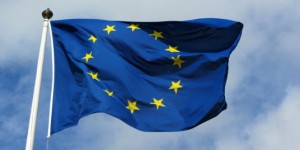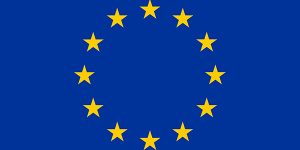These teenagers are far from home. While their peers in other parts of the world worry about homework, which pair of sneakers to buy, or how to spend the weekend, these boys worry about where they will sleep, get their next meal, or will they ever reach their destinations. They are unaccompanied minor refugees.
Temporary Reception Centre Bira in Bihać is the first in Bosnia and Herzegovina to provide a special department for unaccompanied minors, with more than 200 minors registered. They are accommodated in six-bed containers with power supply, heating, sheets, and basic necessities, as well as three meals a day. It is supported by UNICEF and Save the Children, through a project funded by the European Union.
“UNICEF, in cooperation with Save the Children recognised the need to support unaccompanied children, since it is a group exposed to most risks – from violence, molesting, to being left out of any support. We provide them with protection and support, 24 hours a day, seven days a week. We provide psychosocial support, they are engaged in numerous activities, so we provide the unaccompanied children with the services they couldn’t provide to themselves”, says Alma Pezerović, Refugee/Migrant Crisis Coordinator in the Una-Sana Canton.
Alma runs a team of 16 officers taking care of the children, and they work at the reception centre Bira around the clock. When we asked about the reasons why these boys left their homes, Alma explained that we need to recognise what is going on in their homelands.
“Unaccompanied children in our centre mostly come from Afghanistan and Pakistan. Some boys come from Iraq or Syria. They are old enough to be enlisted back home, and that is what they want to escape. They refuse to join the army. The only way to do so is to flee, to leave their country. Their families are often poor and unable to pay for the entire family to escape. That is the reason why the boys are sent off alone“.
They are left to themselves, thousands kilometres away from home, and they communicate with their parents using Skype. Their dream is to start living a normal life, to go back to school, to grow up to become doctors, mechanics, drivers…
What do these children need the most?
“Interestingly enough, what they usually need is someone to talk to, someone to hear about their struggles. Of course, there are other needs they ask for, such as healthcare, clothing, education. Some of them have the need to re-join their families, which is where the Social Welfare Centre steps in”, Alma Pezerović explained.
As a reminder, it is thanks to the “EU Support to Migration and Border Management in Bosnia and Herzegovina” project that, since the beginning of this semester, migrant and refugee children can enrol in elementary schools and attend classes regularly in the Una-Sana Canton. Those of older age are provided with various trainings at the BIRA Centre.
There is a lot of prejudice against the migrants passing through our country. What can we do to help those who have left their homes in despair?
“To look at a person is to look at the cover of a book. You see the outside of a person, the manifested behaviour. All these persons have profound experiences, extensive struggles in their past have changed them, to make them survive, and they may behave in ways we find odd. I would recommend everyone to restrain from judging by first impression, do not avoid them, do not be afraid of them. Give them a benefit of a doubt, try to communicate. Listen to what they have to say. Most of them we received here are good people who want a safe future and a normal life”, said Alma Pezerović on behalf of the team invested in providing relief to minor migrants and refugees.
The Project “EU Support to Migration and Border Management in Bosnia and Herzegovina” funded by the European Union (EU) worth more than 7.2 million euros, is implemented by the International Organisation for Migration (IOM) in partnership with UNHCR and UNICEF. Publication of this article was funded by the European Union. UNICEF is exclusively responsible for published content which may differ from the official opinion of the European Union.

